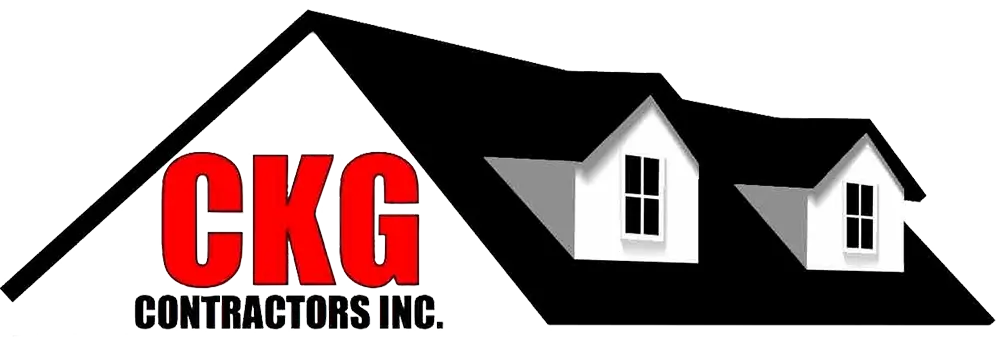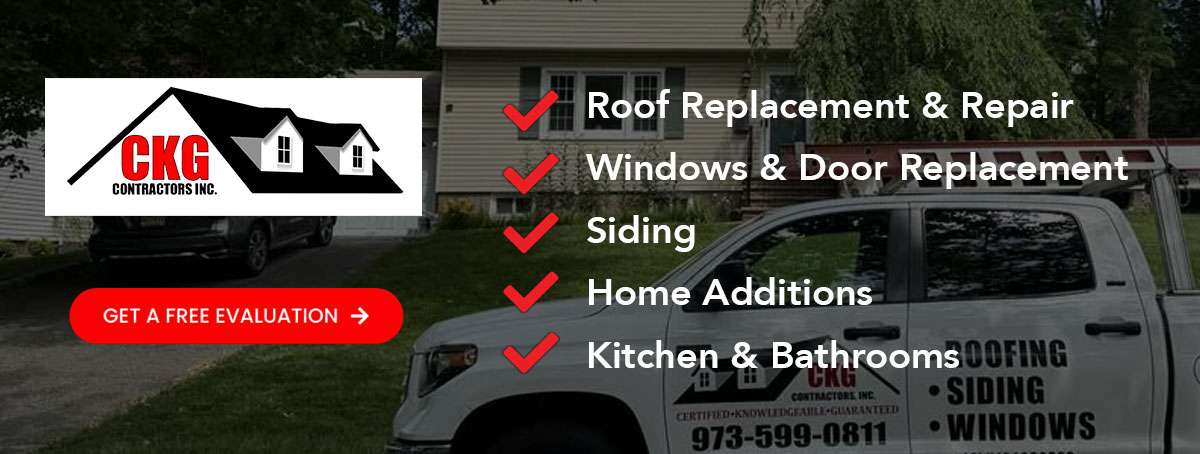Table Of Contents:
- What Business Owners Should Ask Before Hiring a Commercial Roofing Contractor
- What Credentials and Licensing Should a Commercial Roofing Contractor Have?
- How Do You Evaluate a Commercial Roofing Contractor’s Experience and References?
- What Should You Know About Roofing Materials and Warranty Options?
- What Are the Key Elements of the Roofing Project Scope and Timeline?
- How Can You Understand and Manage Commercial Roofing Costs and Payment Terms?
- What Should You Know About Ongoing Maintenance and Support From Your Contractor?
- What Communication and Project Management Practices Should You Expect?
- Frequently Asked Questions
What Business Owners Should Ask Before Hiring a Commercial Roofing Contractor
In today’s complex commercial environment, every business owner must ensure that their building’s roofing system is durable, efficient, and capable of withstanding the challenges of daily operations. Selecting the right commercial roofing contractor, especially one experienced in storm damage repair, is not only critical for protecting valuable assets—from inventory to critical machinery—but it also affects long-term operating expenses, safety standards, and even the sustainability and energy efficiency of the facility. Business owners are increasingly aware that a misstep in contractor selection can lead to subpar roofing installations, delayed project timelines, unanticipated repair costs, and potential liability issues resulting from poor workmanship or non-compliance with industry standards.
This article details essential questions that business owners should ask before hiring a commercial roofing contractor. It outlines precise areas of inquiry such as credentials and licensing, contractor experience and references, roofing materials and warranty options, project scope and timeline, cost management and payment terms, ongoing maintenance, and communication and project management practices. By raising these questions, business owners will not only uncover the depth of a contractor’s expertise and reliability but also enhance their own understanding of the nuances involved in commercial roofing projects. This proactive approach helps mitigate risks, ensures compliance with safety and regulatory requirements, and ultimately secures a roofing project that aligns with the strategic goals of the business—whether by reducing operational disruptions or enhancing building energy efficiency.
With an increase in sustainability standards, operational safety, and insurance obligations, asking the right questions becomes indispensable. In an age where transparency and accountability are paramount, ensuring that every aspect of the roofing project is clearly defined, from the quality of materials to post-installation support, safeguards the business and provides peace of mind. As we delve into each key area, readers will discover targeted questions to ask and insights into what constitutes acceptable standards in commercial roofing. This comprehensive guide will empower business owners to make informed decisions when selecting a roofing contractor for their commercial property.
Transitioning to an in-depth look at contractor credentials and licensing, the following sections provide an essential roadmap for evaluating potential partners in commercial roofing.
What Credentials and Licensing Should a Commercial Roofing Contractor Have?
Commercial roofing projects are high-stakes undertakings that demand a contractor with the proper credentials and licensing. Business owners should begin by asking, “What licenses and certifications does the contractor hold?” The first sentence should clearly state that a reputable commercial roofing contractor must be fully licensed in the jurisdictions where the work will be performed, with credentials that include state or local licenses, specific roofing apprenticeship certifications, and additional qualifications from recognized associations. A contractor who holds certifications from entities such as the National Roofing Contractors Association (NRCA) or local Better Business Bureau (BBB) accreditation demonstrates a commitment to established industry standards and ethical business practices.
How Can You Verify a Contractor’s License and Certifications?
Verifying a contractor’s license and certifications is essential. Business owners should ask for copies of all active licenses, along with proof of any specialty certifications, and then independently verify these documents through online state licensing portals or professional association directories. Such verification not only confirms the authenticity of the contractor’s credentials but also offers insights into any past violations or disciplinary actions. Researching the contractor’s history through databases maintained by the Better Business Bureau or state licensing boards can reveal patterns that might indicate reliability issues. Additionally, asking for documented evidence of recent training courses and safety certifications further assures that the contractor is up to date with new roofing materials, installation techniques, and safety protocols.
Why Is Insurance Coverage Essential for Commercial Roofing Contractors?
Adequate insurance is another critical credential that business owners must confirm. A commercial roofing contractor should have top-tier liability insurance, worker’s compensation, and property damage policies that indemnify the client from potential claims during or after the roofing project. This insurance coverage is not merely a formality; it is proof that the contractor is prepared to manage risks associated with unforeseen incidents, such as falls, equipment failure, or material defects. Asking for copies of insurance certificates and verifying them with the provider can prevent costly legal disputes. Insurance protects the business owner’s asset in the event of any accident on site and ensures that the project complies with state and local building codes.
What Safety Records and Compliance Should You Request?
Beyond licenses and insurance, business owners should inquire about the contractor’s safety record and adherence to local and federal safety regulations. Contractors with a low incident rate, documented safety training programs, and compliance certifications such as OSHA training demonstrate a commitment to a safe working environment. A contractor’s safety record can often be a predictor of their general operational standards. Asking for detailed records of past safety incidents, safety program plans, and audits conducted by third-party safety inspectors provides a window into the contractor’s operational discipline. Furthermore, requesting information about the measures taken to comply with environmental and waste disposal regulations ensures that the roofing project will not only protect the building but also adhere to broader community standards for sustainability and safe working practices.
How Do You Evaluate a Commercial Roofing Contractor’s Experience and References?

Experience and references are two pillars that support the commercial roofing contractor’s credibility. Business owners must determine whether the contractor has relevant experience in similar projects. The more diverse and recent the contractor’s portfolio, the better they are likely to handle complex projects. Experience should be examined in terms of project size, roof type (flat, metal, modified bitumen, TPO, etc.), and the contractor’s ability to manage tight deadlines. Often, experienced contractors have a wealth of knowledge about how unforeseen issues like severe weather conditions or supply delays can impact projects, and thus they are better equipped to provide robust solutions.
What Questions Should You Ask About Past Commercial Roofing Projects?
Business owners should ask targeted questions regarding past projects. It is essential to inquire about the type and complexity of previous roofs installed, the challenges encountered, and the methods used to resolve complications. Asking, “Can you provide examples of projects similar to mine?” establishes the relevance of the contractor’s expertise. In-depth discussion about project timelines, budget adherence, and outcomes provides tangible evidence of a contractor’s reliability. Additionally, businesses should ask for case studies or project completion reports that detail the installation process, quality control measures, and any post-project maintenance performed. These detailed responses help in understanding whether the contractor has consistently delivered results in line with industry standards and client expectations.
How Can Client References and Reviews Inform Your Decision?
Client references and reviews serve as third-party validations of a contractor’s work. Business owners should request a list of references from previous commercial projects, including contact information for past clients. Following up with these references gives firsthand accounts of the contractor’s ability to meet deadlines, adhere to budgets, and communicate effectively. Online reviews, testimonials, and ratings on platforms such as the Better Business Bureau provide further insights into recurrent issues or consistently high performance. A diverse set of positive reviews and satisfied clients can indicate strong customer service, while negative feedback may signal recurring issues with quality or project management. Detailed reviews that comment on contractor reliability, craftsmanship, and adherence to safety protocols are particularly valuable.
What Roofing Materials and Systems Has the Contractor Worked With?
Evaluating a contractor’s familiarity with various roofing materials and systems is crucial. Business owners must ask if the contractor has experience with the specific type of roofing system required for the project. Whether the project involves TPO, EPDM, modified bitumen, metal, or other roofing systems, the contractor’s background with similar materials can directly impact the quality of the installation and its longevity. Contractors should be able to describe the advantages and limitations of each roofing material based on their past projects. This discussion should include how the contractor approached installation challenges, maintenance needs, and integration of energy-efficient technologies. Contractors with a robust understanding of multiple systems are more likely to offer innovative solutions for problem areas like waterproofing and thermal insulation.
What Should You Know About Roofing Materials and Warranty Options?
The selection of roofing materials and understanding warranty options are arguably among the most significant decisions for a commercial roofing project. Business owners must be informed about the durability, performance, and long-term cost implications of each material type. Common options include TPO, EPDM, metal, modified bitumen, and single-ply membranes; each material has specific advantages regarding energy efficiency, installation complexity, maintenance requirements, and overall lifespan. The selection process should consider not only immediate cost but future expenses related to repairs and maintenance. An optimal roofing solution balances upfront investment with long-term benefits, including improved energy performance and reduced repair frequency.
How Do Different Commercial Roofing Materials Compare?
Comparative analysis of roofing materials requires an evaluation of factors such as cost, durability, ease of installation, and energy efficiency. Business owners should request detailed technical data, including manufacturer specifications, life expectancy, and performance ratings. For example, TPO is valued for its energy efficiency and cost-effectiveness, while metal roofs are recognized for their longevity and exceptional durability against harsh weather conditions. By comparing attributes in a structured format, such as a table that outlines properties like thermal performance ratings, installation costs, maintenance needs, and warranties, business owners can make a more informed decision. Such a structured comparison helps clarify the trade-offs between high upfront cost versus maintenance savings and energy performance benefits over time.
Before finalizing a material choice, business owners should discuss long-term performance scenarios and projected energy savings. This detailed comparison of roofing materials ensures that the chosen solution effectively meets both current functional requirements and future maintenance expectations.
What Warranty Coverage Should You Expect on Materials and Labor?
Warranty options are critical as they determine how potential defects are remedied without additional cost to the owner. Business owners must ask contractors to provide detailed, written warranty information on both the materials used and labor provided. A comprehensive warranty generally covers material defects, installation errors, and premature degradation. Typically, warranties vary from 10 to 25 years depending on the roofing material and the contractor’s confidence in their workmanship. Verifying that the warranty provisions are backed by the manufacturer and, if possible, by an independent third party, adds an extra layer of protection against future claims. Knowing that warranty claims can be processed efficiently minimizes potential disruptions if issues arise.
How Do Roofing Material Warranties Affect Long-Term Costs?
The effect of roofing material warranties on long-term costs should be a key consideration. A robust warranty not only signifies high quality and reliability, but it can also reduce future financial risks. Business owners should ask, “How does the warranty cover the long-term durability of the roof and potential repair costs?” By comparing warranty lengths, coverage details, and claim processes, they can assess the cost-benefit ratio of different roofing materials. For instance, while a higher initial investment in a metal roof may come with an extensive warranty and fewer repair needs, choosing a lower-cost option with a shorter warranty might lead to higher maintenance expenses over time. A detailed discussion of these trade-offs, supported by historical data on repair frequencies and warranty claim rates, can help in projecting the total cost of ownership for commercial roofing projects.
What Are the Key Elements of the Roofing Project Scope and Timeline?

The success of any commercial roofing project heavily depends on clearly defined project scope and realistic timelines. Business owners should expect the roofing contract to detail the scope of work, including material specifications, installation procedures, cleanup, and final inspections. Furthermore, a comprehensive project plan should identify potential risks and how unexpected issues will be managed with change orders and schedule adjustments. An accurate timeline is equally important; it sets the pace for project milestones and provides benchmarks for progress. A well-articulated timeline includes start and finish dates, intermediary deadlines, and contingency plans for delays due to weather or supply disruptions.
How Should the Roofing Contract Define Project Scope and Deliverables?
A roofing contract must clearly define the project scope and the expected deliverables. Business owners should demand that the contract itemizes all services to be provided—from preliminary assessments and material procurement to the disposal of old roofing materials and final site cleanup. Each deliverable, such as the removal of existing roofing layers, installation of insulation, roofing membrane application, and integration of drainage systems, should be explicitly detailed. The contract should also specify the quality standards to be met, referencing industry standards and manufacturer guidelines. This level of detail not only protects the business from scope creep but also ensures that both parties have a mutual understanding of what constitutes project completion. An itemized contract minimizes disputes by providing a clear roadmap of tasks, deadlines, and responsibilities.
What Is a Realistic Timeline for Commercial Roofing Projects?
A realistic timeline for a commercial roofing project should consider all phases from planning to final inspection. Generally, small to medium-sized roofing projects can take anywhere from three to six weeks, depending on factors such as weather conditions, building size, and material availability. For larger or more complex roofs, timelines may extend up to several months. Business owners should expect the contractor to provide a detailed schedule that outlines key milestones, including preparation, material delivery, installation phases, and post-installation inspections. This timeline should also account for potential delays and include provisions for rescheduling. Contractors who offer a well-structured schedule typically demonstrate better project management skills and a proven track record of on-time completions.
How Are Change Orders and Unexpected Issues Handled?
Handling change orders and unexpected issues is a pivotal element of any comprehensive roofing project. Changes to the original scope of work may arise due to unforeseen roof conditions, modifications in building codes, or client-design changes. Business owners must inquire about the contractor’s process for managing change orders, which should include clear documentation, timely communication, and an approved adjustment to the project timeline and budget. An effective process involves a written change order signed by both parties, outlining additional costs and revised deadlines. By understanding this process, business owners can mitigate the financial and operational risks associated with unexpected issues. Documenting all changes formally ensures transparency and accountability throughout the project life cycle.
How Can You Understand and Manage Commercial Roofing Costs and Payment Terms?
Commercial roofing projects involve significant financial investment, making cost management and clear payment terms essential for avoiding financial pitfalls. Business owners should ask detailed questions about how costs are determined and seek a comprehensive estimate that breaks down every component—from labor and materials to disposal fees and contingency allowances. By understanding these factors, they can compare estimates and negotiate more favorable payment credentials. Payment terms should be structured to reflect project milestones, ensuring that payments are made as work progresses rather than upfront. This milestone-based payment schedule protects the business owner and incentivizes the contractor to adhere to deadlines and quality standards. Transparent communication regarding costs also helps prevent unforeseen charges once the project is underway.
What Factors Influence the Cost of Commercial Roofing?
The overall cost of a commercial roofing project is influenced by several factors, including the type of roofing material used, the complexity of the building structure, the geographic location, and prevailing labor costs. Other key drivers include the size of the roof, the current condition of the existing roofing system, and any necessary structural repairs before the new roof can be installed. Additionally, factors such as weather conditions and project scheduling can further influence costs due to potential delays. An experienced contractor will provide a cost breakdown that highlights the expense associated with each component of the project. By asking for detailed estimates and comparing them with industry averages, business owners are better positioned to manage expenses and identify any areas where costs can be optimized without compromising quality.
How Do You Obtain Accurate and Detailed Roofing Estimates?
Obtaining accurate and detailed roofing estimates involves a thorough on-site assessment by a qualified contractor. Business owners should insist on in-person inspections that evaluate the roof’s current condition, assess any structural issues, and determine the amount of roofing material required. Accuracy in estimates is enhanced when contractors provide a written proposal that itemizes every cost, from material and labor to permit fees and disposal expenses. Requesting estimates from multiple reputable contractors and comparing them side-by-side using a detailed cost comparison table can facilitate a more informed decision.
What Payment Schedules and Financing Options Are Common?
Common payment schedules for commercial roofing projects usually follow a milestone structure. Initial deposit payments, often 10%–20% of the overall cost, cover mobilization and initial material procurement. Subsequent payments are tied to key project milestones, such as completion of material installation or passing a mid-project inspection. The final payment is released upon full project completion and the successful passing of all quality and safety inspections. Financing options, such as working capital loans or lines of credit from specialized lenders, may also be available for larger projects. Business owners should inquire about any financing packages offered by the contractor or through third-party financial institutions. A well-structured payment plan protects both the owner and the contractor, ensuring that cash flow is maintained while upholding project integrity.
What Should You Know About Ongoing Maintenance and Support From Your Contractor?

A roofing system is not a “set and forget” asset; it requires regular maintenance and support to ensure its longevity and consistent performance. Business owners must ask about ongoing maintenance plans and post-installation customer support to protect their investment over time. Maintenance plans often include regular inspections, cleaning, repairs, and sometimes even scheduled re-coating or sealing processes, which can lengthen the lifespan of the roof. Given the significant costs associated with commercial roofing, a robust maintenance plan can yield long-term savings by preemptively addressing minor issues before they become major problems.
Why Is a Roofing Maintenance Plan Important for Commercial Buildings?
A roofing maintenance plan is essential because it provides systematic checks and preventive services that minimize the risk of unexpected leaks, structural damage, or energy inefficiency. A regular maintenance schedule ensures that any potential issues, such as minor cracks, blistering, or ponding water, are identified and resolved early. These proactive measures translate into fewer costly emergency repairs and extend the life expectancy of the roofing system. Additionally, a comprehensive maintenance plan may be a requirement for validating the warranty of many roofing materials. By asking for documentation of available maintenance packages and the frequency of recommended service visits, business owners can ensure a continued level of roofing performance and a timely response to any emerging issues.
How Often Should Commercial Roof Inspections and Repairs Be Scheduled?
The frequency of roof inspections and repairs should be tailored to the specific roofing system in use, as well as the building’s exposure to environmental stressors such as extreme weather and temperature fluctuations. Generally, a thorough professional inspection should occur at least twice a year—once before the onset of summer and once before winter—when weather conditions can exert maximum stress on the roof. In addition to these routine inspections, business owners should also schedule an immediate inspection following any severe storms or significant weather events. The repair frequency may vary, but addressing minor issues promptly often prevents extensive damage. Contractors should offer a maintenance contract that includes scheduled inspections, emergency response timings, and planned repairs, ensuring that the roof remains in top condition.
How Do You Ensure Responsive Contractor Support After Installation?
Ensuring responsive and reliable contractor support after the installation of a commercial roofing system is crucial for addressing any unexpected concerns immediately. Business owners should examine the contractor’s customer service history and ask for examples or testimonials regarding post-installation service. Key considerations include the contractor’s response time for emergency repairs, the availability of a dedicated service team, and clear communication protocols. Written guarantees that outline post-installation support, along with a detailed service-level agreement (SLA), provide assurances that the contractor will address issues swiftly. Contractors who offer extended support periods or annual follow-up inspections typically demonstrate a commitment to quality and customer satisfaction. By establishing robust communication channels and clear escalation procedures upfront, business owners can mitigate the risk of delays or further damage should any issues arise.
What Communication and Project Management Practices Should You Expect?
Effective communication and project management practices are fundamental to the success of any commercial roofing project. Business owners must ensure that the contractor not only completes the work on time and within budget but also keeps them informed throughout the project lifecycle. Transparent communication minimizes misunderstandings, and clearly defined roles and points of contact help ensure that any queries or issues are addressed promptly. Modern project management tools and regular status updates are indicators of a contractor’s professionalism and commitment to meeting client expectations. Moreover, delivering regular progress reports and maintaining a detailed project log can provide valuable insights into scheduling adjustments, change orders, and cost fluctuations. Such practices indicate that the contractor is well-organized, responsive, and capable of managing complex projects with multiple moving parts.
How Will the Contractor Keep You Informed Throughout the Project?
Contractors should provide a clear communication plan that outlines the frequency and medium of updates. Business owners should inquire whether the contractor offers weekly progress meetings, written reports, or access to a project management portal. Effective communication means that the client is promptly informed of any delays, changes, or issues encountered during the roofing process. The first updates should occur during the initial planning phase, with regular subsequent reports during material procurement, installation, and final inspection phases. A detailed communication plan minimizes ambiguity and allows the business owner to track progress. By confirming the point of contact—be it a project manager or site supervisor—business owners can ensure that their concerns are addressed directly and quickly. This proactive communication strategy fosters transparency and trust, reducing misunderstandings and aligning expectations.
Who Will Be Your Point of Contact During the Roofing Project?
Identifying a single point of contact is essential for clarity and accountability during a roofing project. Business owners should verify that the contractor designates an experienced project manager or site supervisor who will serve as the liaison throughout the project. This individual is responsible for coordinating all aspects of the project, from everyday communication to resolving any emergent issues. A dedicated point of contact ensures that information flows seamlessly between the contractor‘s team and the business owner, enabling prompt responses to questions or concerns. This practice not only streamlines communication but also demonstrates the contractor’s organizational efficiency and commitment to customer service. The project manager or supervisor should have a comprehensive understanding of all technical aspects of the project and serve as the primary resource for addressing troubleshooting or scheduling changes. Clear identification of a responsible individual can alleviate potential stress and ensure that the project adheres to agreed timelines and standards.
How Are Safety and Site Preparation Communicated and Managed?
Safety and proper site preparation are critical components that need to be clearly communicated and managed throughout the roofing project. Business owners should ask detailed questions about who will oversee safety protocols on the site, including the coordination of equipment, worker safety training, and contingency plans for adverse weather conditions. The contractor should detail how safety standards are implemented and maintained, specifying the safety gear used, training frequency for workers, and methods of compliance with OSHA or local safety regulations. A well-structured safety plan includes clear communication regarding daily safety briefings, hazard identification, and emergency response procedures. In addition, site preparation should be meticulously planned, ensuring minimal disruption to business operations. This involves the proper setup of barriers, protective coverings, and clear signage indicating restricted areas during the roofing process. Effective management of safety and site preparation demonstrates the contractor’s dedication to protecting employees, property, and bystanders, and enhances overall project efficiency.
Frequently Asked Questions
Q: What types of licenses should a commercial roofing contractor possess? A: A reputable commercial roofing contractor must hold state and local licenses relevant to roofing and construction. These licenses often include specialized certifications from reputable bodies such as the NRCA. Verification through state licensing portals and the BBB is recommended to ensure authenticity and a clean disciplinary record.
Q: How can business owners verify a roofing contractor’s insurance coverage? A: Business owners should request copies of the contractor’s liability and worker’s compensation insurance certificates. Verifying these documents with the issuing insurance companies ensures that the contractor can cover potential accidents or damage during the project. Full coverage protects the owner from financial liabilities arising from onsite incidents.
Q: What should be included in a detailed roofing project contract? A: A detailed roofing project contract should specify the full scope of work, including material specifications, installation procedures, cleanup efforts, safety standards, payment milestones, and warranties on both materials and labor. This documentation minimizes misinterpretations and ensures that all deliverables and responsibilities are clearly articulated to avoid disputes.
Q: How do warranties affect the long-term cost of a roofing project? A: Warranties provide a safety net against defects or failures in both materials and workmanship. A robust warranty can significantly reduce future repair expenditures by guaranteeing repair or replacement at no additional cost. Business owners should compare warranty terms alongside initial cost estimates to determine the overall value and potential long-term savings.
Q: How important is it to schedule regular roof inspections? A: Regular roof inspections are vital for identifying and addressing minor issues before they escalate into major repairs. Typically, professional inspections should occur biannually and after severe weather events, ensuring that the integrity of the roofing system is maintained. Proactive maintenance helps extend the roof’s lifespan and reduces emergency repair costs.
Q: What payment terms are common in commercial roofing projects? A: Common payment terms include an initial deposit (usually 10–20% of the total cost) followed by milestone-based payments throughout the project. The final payment is typically released upon successful completion and quality verification. Such a structured schedule ensures that payments align with project progress, protecting both the business owner and the contractor.
Q: Why is effective communication critical during a roofing project? A: Effective communication ensures that business owners are kept informed of project progress, delays, and changes. It facilitates prompt resolution of issues, minimizes misunderstandings, and builds trust between the owner and contractor. Designating a single point of contact further streamlines communication and contributes to overall project efficiency.




